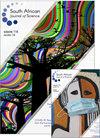压力对目击者记忆的非线性影响
IF 2.3
4区 综合性期刊
Q2 MULTIDISCIPLINARY SCIENCES
引用次数: 0
摘要
压力对人脸识别的影响尚不清楚,最近的实验发现了积极、消极和无效的结果。在这里,我们报告了两个实验的结果,这两个实验考察了压力对排队人脸识别任务中目击者表现的影响。这两个实验都使用了压力操纵和现场模拟犯罪范式来检验编码时的压力和随后的排队表现之间的关系。实验1复制了Sauerland等人的实验(Behav Sci Law.2016;34(4):580–594),该实验使用马斯特里赫特急性应激测试诱导应激。复制发现与原始实验相同的空结果。实验2旨在解决许多实验室实验的局限性,这些实验将压力分为低组和高组进行比较。正如耶克斯·多德森定律(1908)所表明的,压力和表现之间存在非线性关系,有人假设,使用低、中、高压力操纵可能比二分法范式显示出更清晰的结果。实验2的结果显示出非线性关系,低应力组和高应力组之间没有差异,但中等应力组的表现更好。结果表明,在压力和人脸识别的实验中需要一种不同的方法,因为压力-表现关系可能是非线性的。本文章由计算机程序翻译,如有差异,请以英文原文为准。
Non-linear effects of stress on eyewitness memory
The effect of stress on face identification is not yet clear, with recent experiments finding positive, negative and null results. Here we report the results of two experiments examining the effect of stress on eyewitness performance in line-up face recognition tasks. Both experiments use a stress manipulation and live mock crime paradigm to examine the relationship between stress at encoding and subsequent line-up performance. Experiment 1 replicated an experiment by Sauerland et al. (Behav Sci Law. 2016;34(4):580–594) which induced stress using the Maastricht Acute Stress Test. The replication found the same null result as the original experiment. Experiment 2 aimed to address a limitation of many laboratory experiments which dichotomise stress into low and high groups for comparison. As the Yerkes-Dodson law (1908) suggests that a non-linear relationship exists between stress and performance, it was hypothesised that using a low, medium and high stress manipulation might show clearer results than a dichotomous paradigm. The results of Experiment 2 show a non-linear relationship, with no difference between the low and high stress groups but better performance by the middle stress group. The results suggest that a different approach is required in experiments on stress and face recognition, as the stress–performance relationship is likely non-linear.
求助全文
通过发布文献求助,成功后即可免费获取论文全文。
去求助
来源期刊

South African Journal of Science
综合性期刊-综合性期刊
CiteScore
3.20
自引率
4.20%
发文量
131
审稿时长
1 months
期刊介绍:
The South African Journal of Science is a multidisciplinary journal published bimonthly by the Academy of Science of South Africa. Our mandate is to publish original research with an interdisciplinary or regional focus, which will interest readers from more than one discipline, and to provide a forum for discussion of news and developments in research and higher education. Authors are requested to write their papers and reports in a manner and style that is intelligible to specialists and non-specialists alike. Research contributions, which are peer reviewed, are of three kinds: Review Articles, Research Articles and Research Letters.
 求助内容:
求助内容: 应助结果提醒方式:
应助结果提醒方式:


